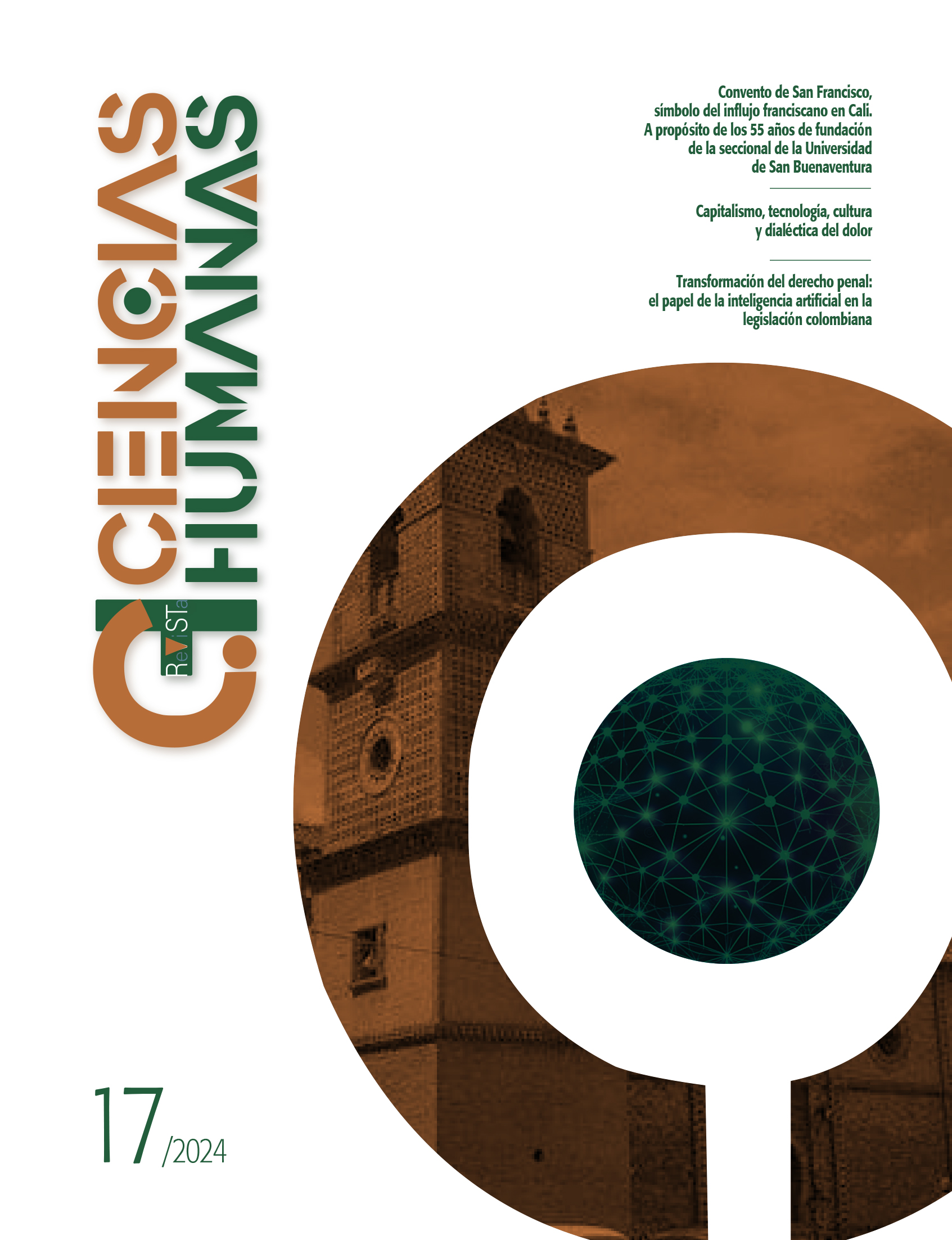The Revista Ciencias Humanas provides open and immediate access to its content, based on the principle of offering the public free access to research to aid in the greater global exchange of knowledge.
Except as otherwise stated, the content of this journal is licensed under a Creative Commons Attribution-NonCommercial-NoDerivatives 4.0 International (CC BY-NC-ND 4.0) license available at http://creativecommons.org/licenses/by-nc-nd/4.0/.
- Attribution. You must give appropriate credit, provide a link to the license, and indicate if changes have been made. You may do so in any reasonable manner, but not in a way that suggests that the licensor endorses you or your use.
- NonCommercial. You may not use the material for commercial purposes.
- NoDerivatives. If you remix, transform, or build upon the material, you may not distribute the modified material.
- No Additional Restrictions. You may not apply legal terms or technological measures that legally restrict others from doing anything the license permits.
Abstract
The critical study demonstrates how to do philosophy in a culture trapped in the digital age, technocracy, infodoxa, and artificial intelligence (AI), through Friedrich Nietzsche’s investigative technique. Regarding the methodology, an examination of the documentary archive is carried out, which gives epistemological value to the prologue in the author's most recognized works in the West. In this sense, it is concluded that—faced with the bleak panorama of a world trapped in the tyrannical paradigm of the algorithms produced by AI—a thinker stands like a sphinx to restore to human beings the illusion of living through the rebellion of a sharp intellectual exercise: the technique of visceral, organic and genealogical research through a slow, rigorous and constant process that returns the central role to writing, reading and the intertwining with the cultural and historical context of the actor in the comedy of life.
Keywords:
References
Bostrom, N. (2016). La superinteligencia: caminos, peligros, estrategias. Teell.
Bourdieu, P. (2002). Campo de poder, campo intelectual. Montressor.
Castoriadis, C. (1997). El imaginario social instituyente. Zona Erógena, (35), 1-9.
Foucault, M. (1968). Las palabras y las cosas. Siglo XXI.
Foucault, M. (1979). Vigilar y castigar: vigilar y castigar. Siglo XXI.
Foucault, M. (1990). La microfísica del poder. Edisa.
Freire, P. (1971). Pedagogía del oprimido. Siglo XXI.
González, W. (2023). Seminario temático: la técnica de investigación en Nietzsche. Universidad del Valle.
Habermas, J. (1999). Teoría de la acción comunicativa. Taurus.
Hawking, S., y Mlodinow, L. (2019). El gran diseño. Crítica.
Hegel, F. (1966). Fenomenología del espíritu. FCE.
Kuhn, T. (2004). Estructura de las revoluciones científicas. Siglo XXI.
Lipovetsky, G. (1980). La era del vacío. Alianza.
MACBA Streaming. (2015, 5 de marzo). “La opción descolonial y la actualidad mundial” conferencia a cargo de Walter Mignolo [Video]. YouTube. https://www.youtube.com/live/Kwcigz1NPQc?si=ewLwxstbCkQYrlbm
Marx, K. (2001). El manifiesto comunista. Alianza.
Nietzsche, F. (1989). Así habló Zaratustra. ME Editores.
Nietzsche, F. (1994). Aurora: reflexiones sobre los prejuicios morales. ME Editores. (Originalmente publicado en 1881)
Nietzsche, F. (1999). Schopenhauer cómo educador. Valdemar. (Originalmente publicado en 1876)
Nietzsche, F. (2003). Genealogía de la moral: un escrito polémico. Alianza. (Originalmente publicado en 1887)
Poulain, J. (2016). La apuesta por la verdad: crítica a la racionalidad pragmática. Universidad del Valle.









